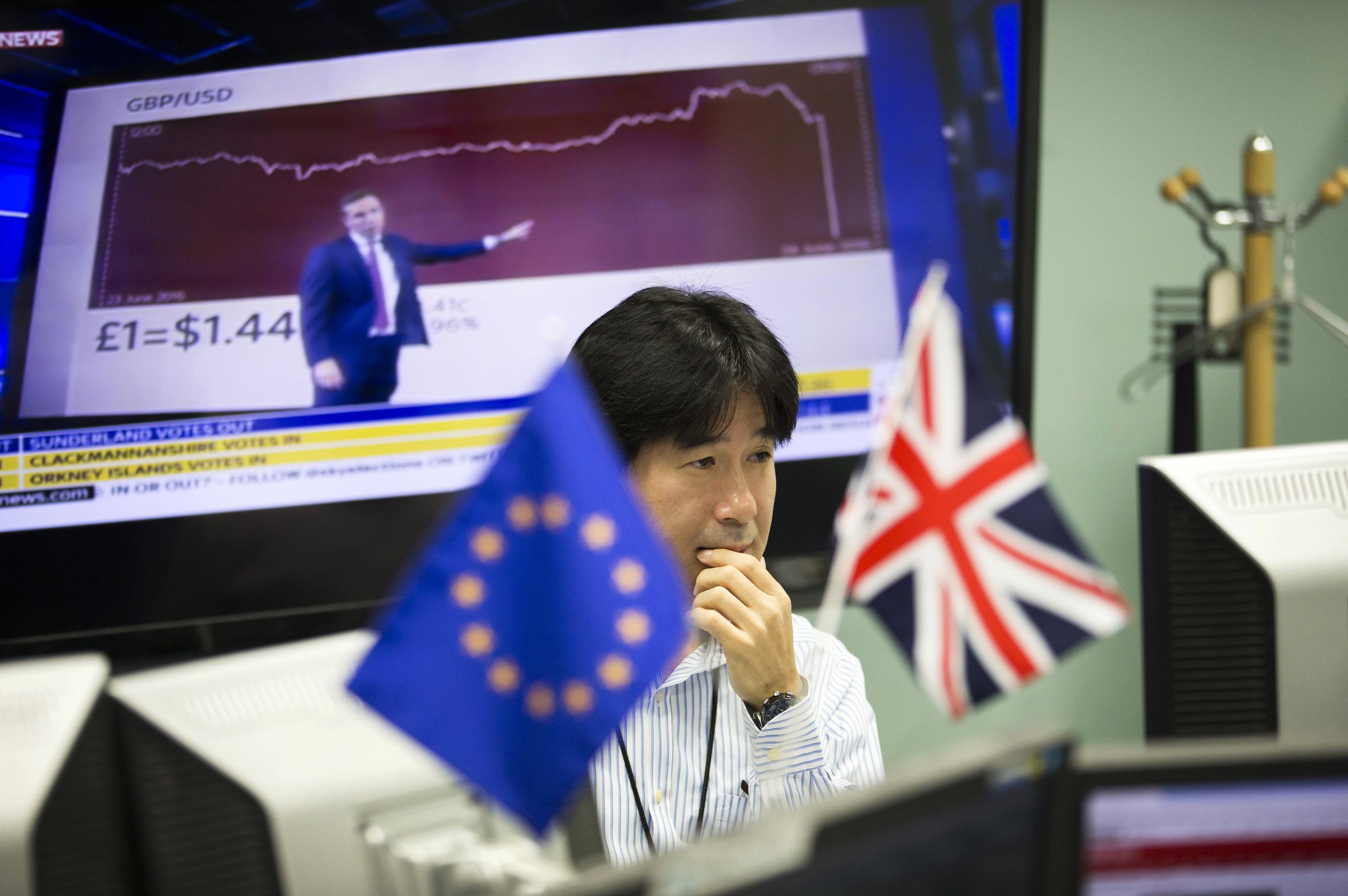
Asia has long resisted union. Its borders encompass the world’s two most populous nations, China and India, each a complete world unto itself. An attempt to link the countries of Southeast Asia — merely one chunk of the continent — has produced a weak institution less adept at actual policymaking than organizing photo-ops of hand-holding ministers in local garb.
Earlier this month, the Association of Southeast Asian Nations (ASEAN) even failed to reach consensus on the threat China’s militarized island-building poses in the contested South China Sea. A diplomatic fumble ensued, with the Malaysians leaking an ASEAN statement condemning China before quickly retracting it. “ASEAN can’t even figure out what it doesn’t want to say,” a senior Asian diplomat told me. “It’s becoming a laughing stock of an institution.”
But with Friday’s historic vote in Britain to depart the European Union, Asia’s fragmented nature feels more omen than anomaly. In the minutes after Brexit looked certain, Asian economies reacted badly. Japanese stocks plunged more than 8%, forcing a suspension in futures trading. China’s yuan — a currency already being propped up by the strenuous interventions of Chinese financial czars — descended to its lowest level against the U.S. dollar in more than five years.
The irony of “Brexit” wasn’t lost on local historians. Much of Asia was colonized and carved up by Europeans, who used the rhetoric of Empire economics to justify repression and plunder. Now, Britain, the mightiest of the colonizers, has turned its back on the modern-day expression of globalization. Where does that leave Asia, a continent already allergic to integration?
Britain’s vote has already catalyzed copycat calls. With the poll result looking clear, Geert Wilders, the nationalist politician in the Netherlands, publicly urged a Dutch vote on forgoing the E.U. France’s far-right leader Marine Le Pen did the same. Other Europeans will likely follow with their own referendums. In the U.S. — a nation of immigrants — supporters of Republican presidential candidate Donald Trump mix populism with jingoism. The call to build barricades grows.
It is in this way that Asia feels like a portent. The continent already lacks cohesion; many of its individual nations remain riven by ethnic, religious and class divides. Decades of stability — of societies painfully striding away from war, genocide and revolution — culminated in the Asian economic miracle. Hundreds of millions of Asians were lifted out of poverty. Yet two-thirds of the world’s poor still live on this continent, as corruption and inequality drain dreams of upward mobility.
Tribalism endures. Across Asia, political and spiritual leaders have resorted to blaming the other — the outsider or even the unwanted insider — for social woes. Nationalism may prove alluring to rulers who want to maintain their grip on power. But declaiming difference is a dangerous game on such a diverse continent. Is this really the lesson those who proclaimed “the Asian Century” wish to impart to the world?
More Must-Reads from TIME
- Donald Trump Is TIME's 2024 Person of the Year
- Why We Chose Trump as Person of the Year
- Is Intermittent Fasting Good or Bad for You?
- The 100 Must-Read Books of 2024
- The 20 Best Christmas TV Episodes
- Column: If Optimism Feels Ridiculous Now, Try Hope
- The Future of Climate Action Is Trade Policy
- Merle Bombardieri Is Helping People Make the Baby Decision
Contact us at letters@time.com